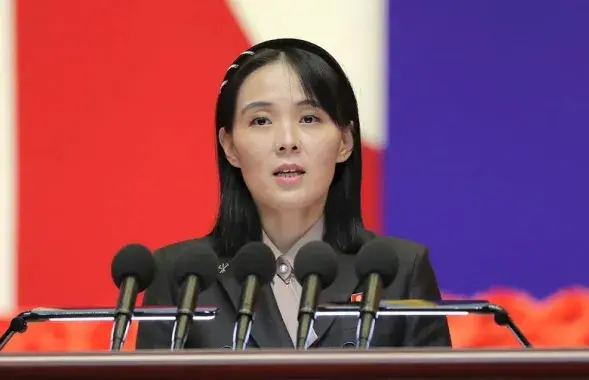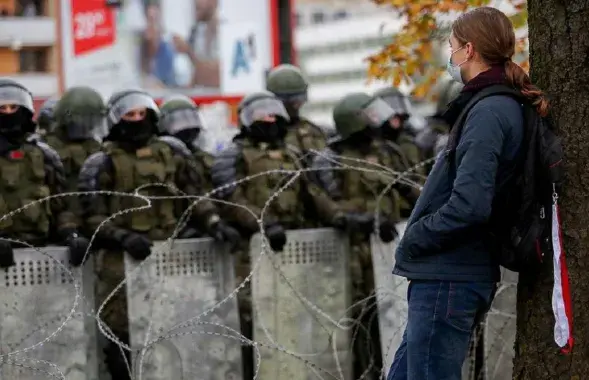Poland waives visa fees for Belarusians (updated)
Poland has also imposed a travel ban for all those in Belarus implicated in election rigging and repressions against presidential candidates.
Poland has also imposed a travel ban for all those in Belarus implicated in election rigging and repressions against presidential candidates and participants of protest action on December 19. Other EU member states may also endorse the sanctions.
By decision of Foreign Minister Radosław Sikorski the fees charged by the Polish Consulates in Belarus for the national visa processing and issuance shall be waived for citizens of the Republic of Belarus as of 1 January 2010.
Besides, visa sanctions will be imposed on the Belarusian citizens who were involved in rigging the election results and repressions against presidential candidates, participants in the December 19 protest action, representatives of political parties, media and civil society. Tune in for more details on Euroradio waves or on the web site.
“The decision is an expression of solidarity with the people of Belarus in recognition for the strong signal of support for democracy movements which they sent out during the presidential election on 19 December 2010. We want to help our neighbours strengthen their European identity by enabling them to have more frequent contacts with the Poles and other citizens of the European Union", Polish foreign ministry said in a statement. "At the same time, we reserve the right to take appropriate measures in order to prevent officials of the Republic of Belarus responsible for organising the recent wave of repression against the civil society from entering the territory of Poland".
The total cost of the national (non-Schengen) visa has so far been €20. Since 1 January 2010 the three Polish Consulates in Belarus (Brest, Grodno and Minsk) have issued 172.486 national and Schengen visas for citizens of the Republic of Belarus. Long-term national visas are usually issued for ordinary citizens, not representatives of the country’s authorities.
It is worth noting that national visas are issued when applicants need to stay over 90 days within 6 months on the territory of Poland. Long-term national visa holders are also eligible to visit other Schengen-zone countries and stay there for not more than 3 months within 6 months.
EU member states may endorse Poland's visa sanctions
Euroradio interviewed Polish MFA press spokesman Marcin Bosacki immediately after this decision was announced.
Euroradio: What type of visa fees are waived? What is the target of visa sanctions?
Marcin Bosacki: By decision of Foreign Minister Radosław Sikorski the fees charged by the Polish Consulates in Minsk, Brest and Hrodna for the national visa processing and issuance shall be waived for citizens of the Republic of Belarus as of 1 January 2010. At the same time, we reserve the right to take appropriate measures in order to prevent officials of the Republic of Belarus responsible for organising the recent wave of repression against the civil society from entering the territory of Poland.
Euroradio: Will Poland seek similar measures by European Union?
Marcin Bosacki: Talks are under way in this regard in the European Union. As you may know. visa sanctions were introduced and frozen against a group of Belarusian officials. I will not run ahead of a decision by the European Union but if someone is entered in the list of persons not desired on the territory of one of EU member states, Poland in this case, this information is automatically shared with the Schengen system and consuls of other European nations can see that this person is not desired by one of European Union state. Usually, they act in a similar way.
Euroradio: How will Poland identify persons who were invloved in repressions and falsifications of the election in Belarus?
Marcin Bosacki: I would not like to go deep into details of Polish official procedures, but I will note that this will not be the list, covering all high-ranking officials in Belarus. The list will be automatically uupdated with the names of those who organized, carried out or supported actively that wave of unprecendented repressions.
Besides, visa sanctions will be imposed on the Belarusian citizens who were involved in rigging the election results and repressions against presidential candidates, participants in the December 19 protest action, representatives of political parties, media and civil society. Tune in for more details on Euroradio waves or on the web site.
“The decision is an expression of solidarity with the people of Belarus in recognition for the strong signal of support for democracy movements which they sent out during the presidential election on 19 December 2010. We want to help our neighbours strengthen their European identity by enabling them to have more frequent contacts with the Poles and other citizens of the European Union", Polish foreign ministry said in a statement. "At the same time, we reserve the right to take appropriate measures in order to prevent officials of the Republic of Belarus responsible for organising the recent wave of repression against the civil society from entering the territory of Poland".
The total cost of the national (non-Schengen) visa has so far been €20. Since 1 January 2010 the three Polish Consulates in Belarus (Brest, Grodno and Minsk) have issued 172.486 national and Schengen visas for citizens of the Republic of Belarus. Long-term national visas are usually issued for ordinary citizens, not representatives of the country’s authorities.
It is worth noting that national visas are issued when applicants need to stay over 90 days within 6 months on the territory of Poland. Long-term national visa holders are also eligible to visit other Schengen-zone countries and stay there for not more than 3 months within 6 months.
EU member states may endorse Poland's visa sanctions
Euroradio interviewed Polish MFA press spokesman Marcin Bosacki immediately after this decision was announced.
Euroradio: What type of visa fees are waived? What is the target of visa sanctions?
Marcin Bosacki: By decision of Foreign Minister Radosław Sikorski the fees charged by the Polish Consulates in Minsk, Brest and Hrodna for the national visa processing and issuance shall be waived for citizens of the Republic of Belarus as of 1 January 2010. At the same time, we reserve the right to take appropriate measures in order to prevent officials of the Republic of Belarus responsible for organising the recent wave of repression against the civil society from entering the territory of Poland.
Euroradio: Will Poland seek similar measures by European Union?
Marcin Bosacki: Talks are under way in this regard in the European Union. As you may know. visa sanctions were introduced and frozen against a group of Belarusian officials. I will not run ahead of a decision by the European Union but if someone is entered in the list of persons not desired on the territory of one of EU member states, Poland in this case, this information is automatically shared with the Schengen system and consuls of other European nations can see that this person is not desired by one of European Union state. Usually, they act in a similar way.
Euroradio: How will Poland identify persons who were invloved in repressions and falsifications of the election in Belarus?
Marcin Bosacki: I would not like to go deep into details of Polish official procedures, but I will note that this will not be the list, covering all high-ranking officials in Belarus. The list will be automatically uupdated with the names of those who organized, carried out or supported actively that wave of unprecendented repressions.



















